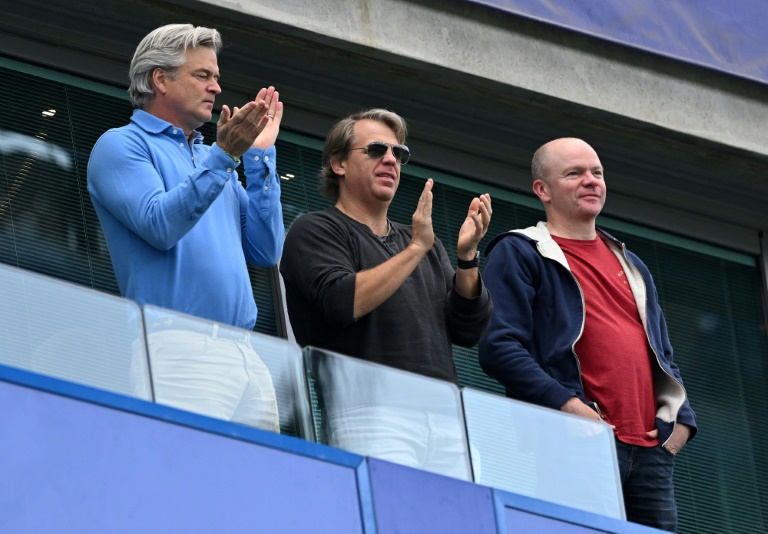
NEW YORK - Time was when sports teams and franchises were largely family enterprises, but now it is investment funds and consortiums buying them despite a downturn in the global economy.
In May, Todd Boehly became the latest American billionaire to buy a Premier League club when he headed up a consortium to seal a pound sterling4.25 billion ($5.3 billion) purchase of Chelsea.
California investment group Clearlake will be Chelsea's majority shareholder as part of the consortium, with Boehly becoming controlling owner after Russian Roman Abramovich put the outfit up for sale.
In doing so the Los Angeles Dodgers co-owner saw off 11 other bidders illustrating the Premier League's global brand is a key driver as it provides the opportunity to benefit from significant broadcast revenues and merchandising.
"It's the highest-quality play, it's the best players," Boehly told Bloomberg in 2019. "You also have a media market that's just developing."
Some football financial analysts believe leading Premier League clubs could be worth more than pound sterling10 billion within a decade.
Hence the growing number of financial consortiums eager to grab themselves a piece of the action but not just in the English top-flight.
"You are seeing more money coming into sport from institutional investors," said David Gandler, co-founder and director general of American streaming television service fuboTV.
"Whereas before it was more families or rich individuals."
There are also other ways of living the sporting dream in buying a club.
"There are quite a few cases of individuals coming together as a group in order to buy clubs," says entrepreneur Pascal Rigo, who recently became a minority shareholder in Ligue 2 side Paris FC.
He adds the benefits of that is it lowers costs per person and increases the potential number of investors thereby "reducing the financial risk".
The prices being paid at the top end of the market, though, show little sign of declining.
Boehly's consortium had paid a record price for a sports club but that did not last long.
Another American consortium headed by Wal-Mart store heir Rob Walton -- others involved included his daughter and son-in-law -- swooped to buy storied NFL franchise the Denver Broncos for $4.65 billion dollars.
- 'Miss the train' -
Such prices are beyond other Americans and they have looked to mainland Europe to invest their money in various football clubs.
In the case of Italian champions AC Milan, it was one US investment fund RedBird buying them -- for $1.3 billion -- off a rival Elliott Management at the beginning of June.
American entrepreneur John Textor -- already a shareholder in Crystal Palace -- bought a majority stake in seven-time Ligue 1 champions Lyon, through his sports investment vehicle Eagle Football Holdings.
His outlay of 600 million euros in June was a record investment for a French club.
"There are a lot of factors which are all pushing in the same direction," said Salvatore Galatioto of financial services firm Galatioto Sports Partners.
"There is no other media content that has more value than sport.
"Betting is also going to boost audiences.
"As a result people are going to watch more matches and that is going to raise the value of the content."
This is reflected in the mind-boggling sums paid for television rights and not just for football -- the sport's main drawcard is its live content.
The money being offered has been boosted as competition has also increased amongst broadcasters with streaming services such as Amazon becoming a major player.
The United States rights to broadcast the NFL for 11 years cost $110 billion in March 2021, whilst the Indian Premier League cricket cost $6.2 billion -- domestic rights and digital collectively -- for a five-year period when put up for tender in mid-June.
For the investors too, owning a club or a franchise is even more reassuring as sport has been able to show it is able to defy economic recessions.
Rob Tilliss, of the specialised investment bank Inner Circle Sports, cites the example of the value of the four major American sports only diminishing by an estimated 2% in 2008/09, at a time when that "was one of the worst economic crises in history".
For Rigo, sport also has that essential element to attract investors in it being considered 'glamorous'.
"There is too the phenomenon of investors not wishing to miss the train."